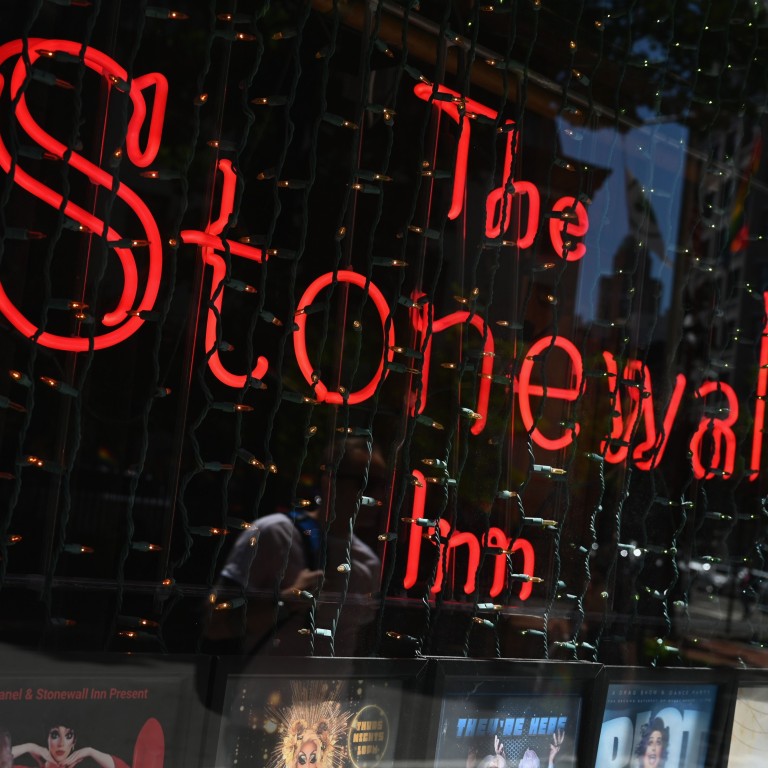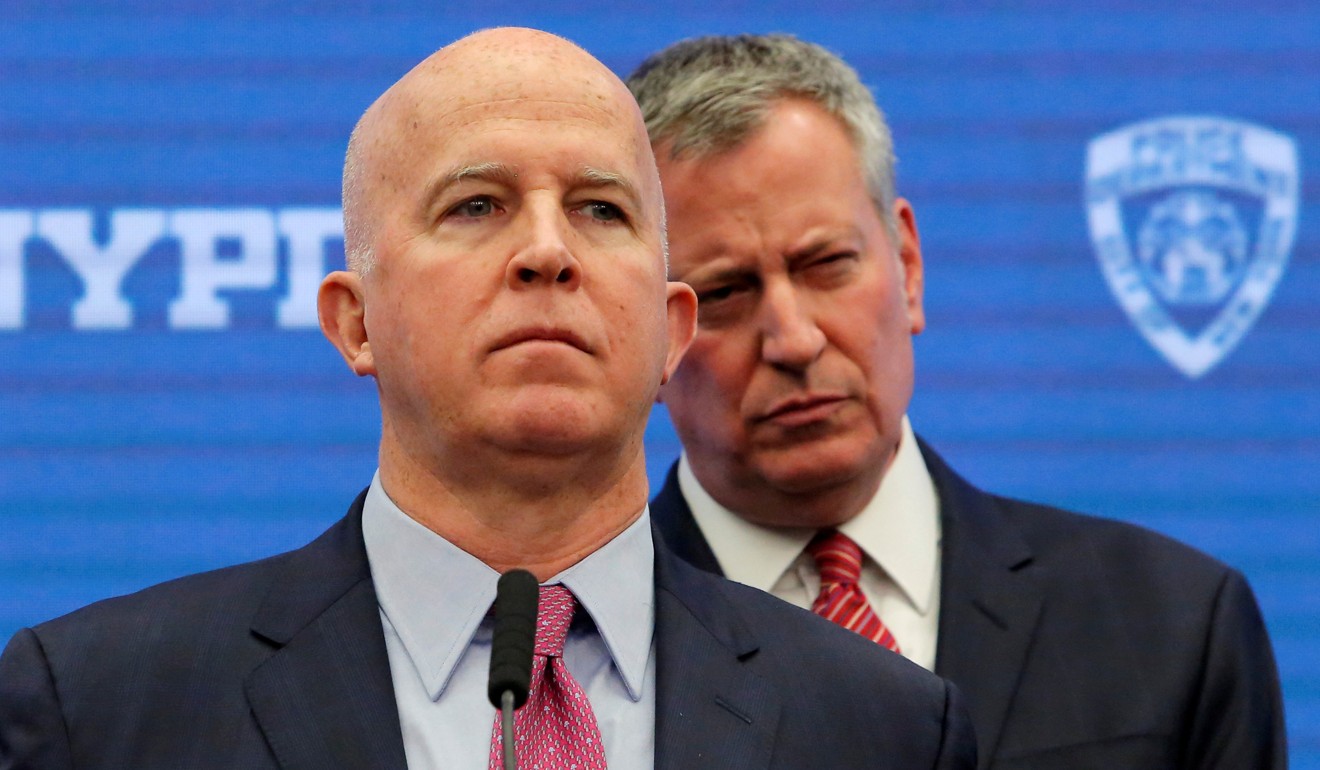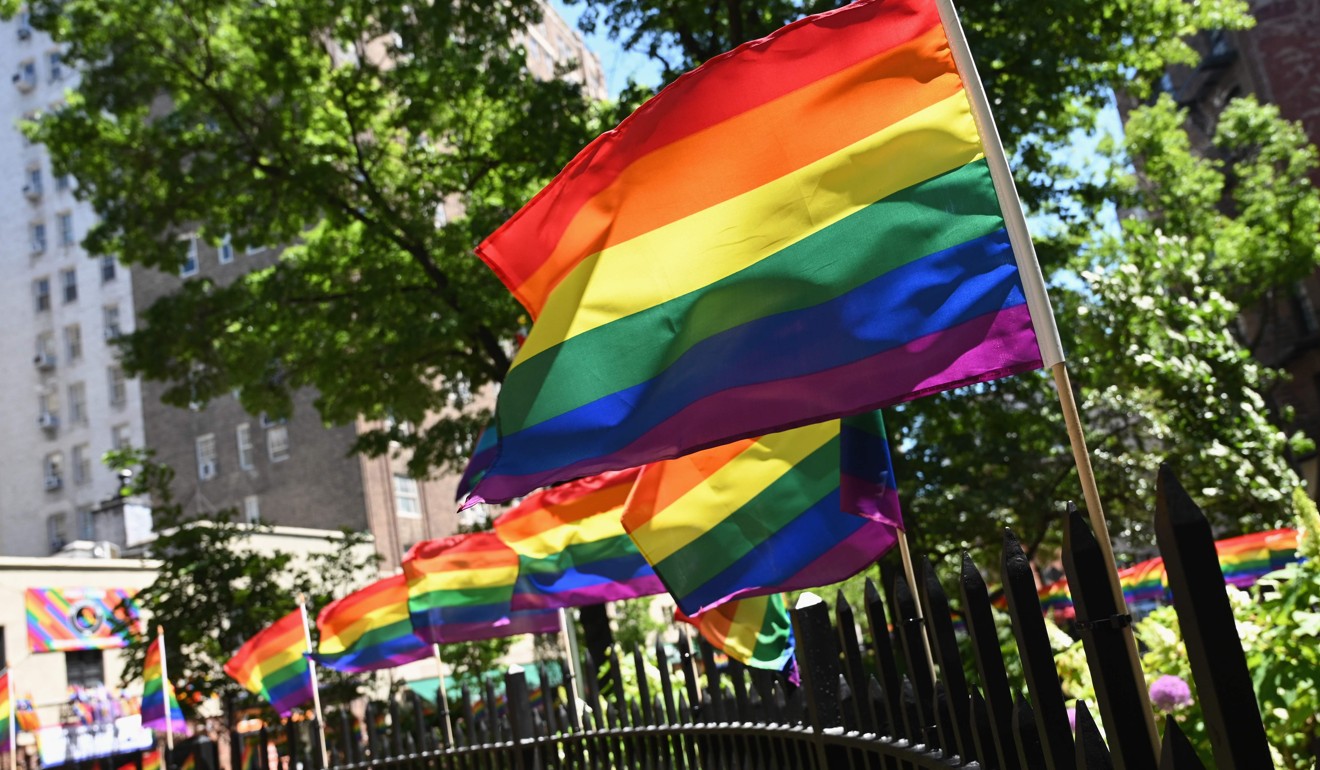
50 years after the Stonewall gay bar raid, New York City’s police commissioner apologises, says action taken was ‘wrong, plain and simple’
- Following the raid in 1969, a riot broke out between bar patrons and police – an event which helped to spark the modern gay rights movement
A half-century after the New York Police Department raided the Stonewall Inn – prompting a riot credited with sparking the modern gay rights movement – NYPD commissioner James O’Neill apologised.
“The actions taken by the NYPD were wrong, plain and simple,” O’Neill said Thursday. “And for that, I apologise.”
O’Neill was speaking at a safety briefing for Pride Month events. After his apology, there was extended applause.
In the early morning hours of June 28, 1969, plain-clothes police raided the Stonewall Inn, a Greenwich Village bar frequented mostly by gay men, with some lesbians and transgender people as well.
For the patrons, raids and police harassment were nothing new. But this time, they fought back. A crowd of hundreds soon gathered outside the bar and threw coins, rocks and garbage, briefly trapping the officers inside the Stonewall.

Reinforcements were called in to break up the crowd; in all, 13 people were arrested that first night. Unrest around the Stonewall continued for days.
On Thursday, the commissioner said that “what happened should not have happened”.
Stonewall was not the first time LGBT people had resisted police violence. But in its aftermath, two new groups emerged – the Gay Liberation Front and the Gay Activists Alliance – that took a more in-your-face, direct action approach to LGBT rights than predecessor organisations like the Homophile Movement and the Mattachine Society.
“It was a departure point for [g]ays like the Bastille was for French people,” wrote historian David Carter in Stonewall: The Riots That Sparked the Gay Revolution.

The next year, GLF and GAA members organised an event called “Christopher Street Liberation Day”. The Stonewall Inn was on Christopher Street, and many homeless LGBT youth lived in a park on the street.
They held the demonstration on June 28, 1970 – the one-year anniversary of the Stonewall riots. It is generally regarded as the first pride march.
Mark Segal, a gay man who took part in the Stonewall riots, reacted to O’Neill’s apology on Facebook, saying he hoped the commissioner would deliver the apology personally at the NYC Pride March on June 30.
“It would not only be welcomed,” he said, “it would close the books on this chapter and give some of us closure.”

